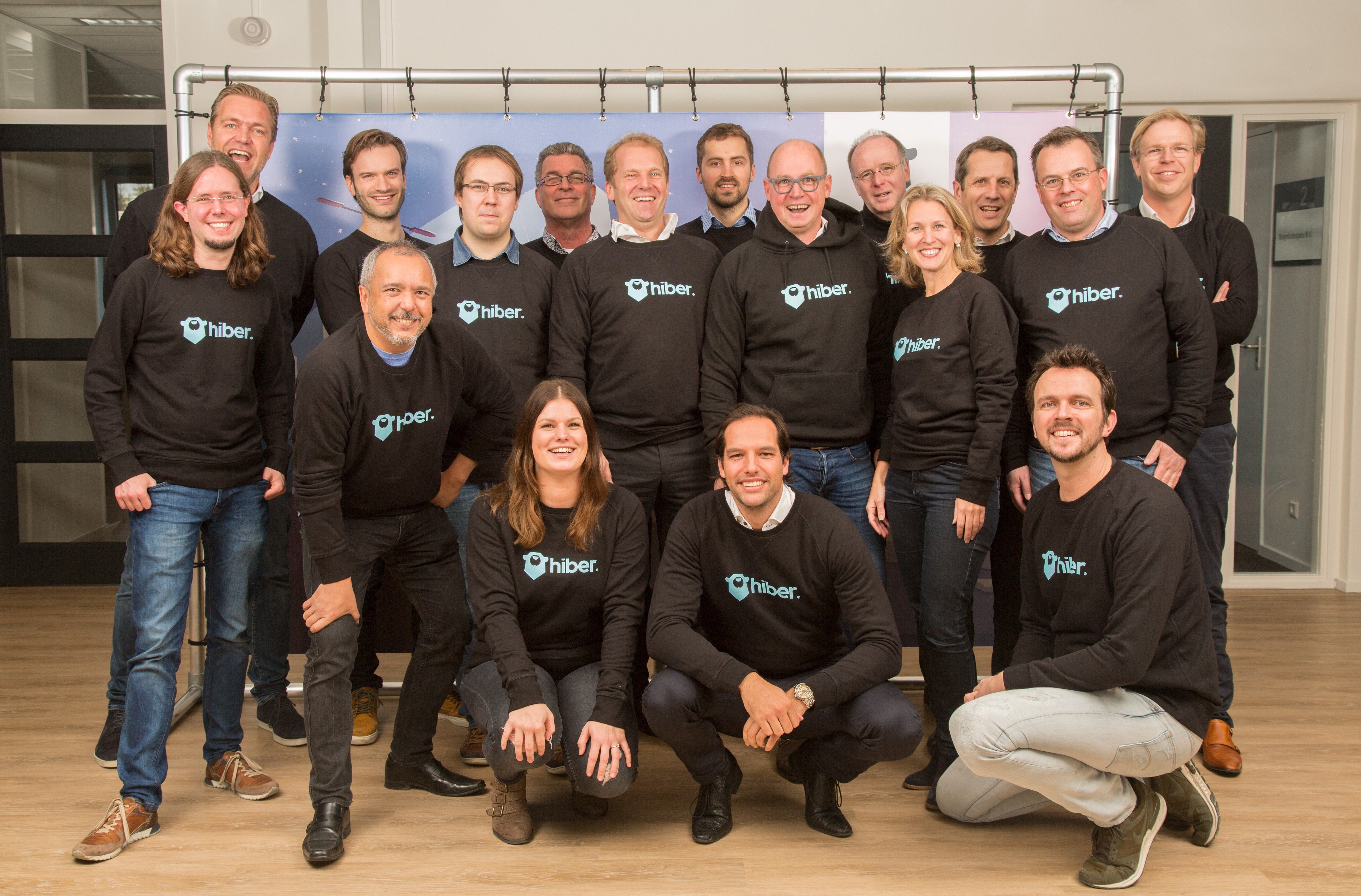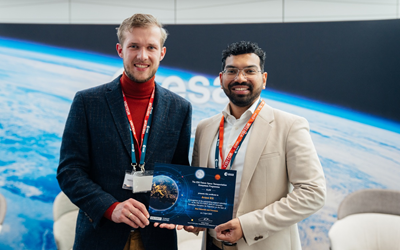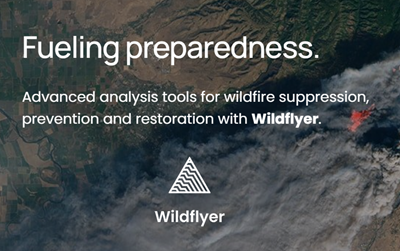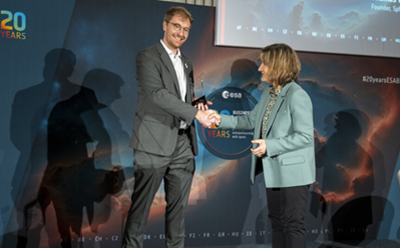Almost sixty years after the moon landing, the word ‘space’ still breathes futurism, innovation and pushing boundaries. But in the business community, ‘space’ also stands for high risk, high cost, and high energy consumption. This is one of the reasons that incubatee Magnitude Space recently rebranded and chose the new name Hiber. As CEO Ernst Peter Hovinga said in Satellite Today: “Hiber is no longer a ‘space’ company. We are an ‘Earth’ company.”

The Hiber team
Connecting the world
The mission of the now 1,5-year old company is still the same, explains CFO Coen Janssen: “We want to provide global connectivity for the Internet of Things. IoT allows all kinds of objects to send really small messages, such as their status or their temperature.
“For this purpose, we provide little modems, which basically sleep 99% of the time, until our satellite flies over and they can send their message. So it is like they are hibernating, hence the name Hiber. That was also one of the last unclaimed 5-letter words on the internet.”
Hundreds of small sats tracking billions of things
Janssen explains that there is still a big untapped segment in the IoT market. “Almost all trucks in Europe are connected via GSM, but their trailers aren’t, and so those do get lost or stolen. And there are billions of other ‘crazy’ objects that have some value and are interesting to track, such as hazardous chemicals on transports, or cattle in Australia, or fishing trawlers on the ocean. We say: throw out those expensive satellite solutions and get a cheap Hiber modem.”
Hiber has secured enough funding to launch its first two small satellites in the Spring of 2018 and is currently discussing next steps of funding. “We decided to go for two satellites on two launchers to spread the risk,” explains Janssen. “We are piggybacking on scheduled launches by the Indian Space Research Organisation and SpaceX. Anyone who has ever launched a small payload knows this can drive you crazy, since the big contractors get to make all the decisions and might suddenly delay the launch.”
Beating the competition to the punch
Apart from the pre-launch jitters, Janssen is not too worried about the future of his business. “There are some comparable initiatives, but I don’t think this will be a ‘winner takes all’ market. The potential is enormous, and there is a lot of compatibility in IoT, so one system does not necessarily exclude the other.”
Janssen definitely does not see traditional satellites as a threat: they are too expensive and their development cycle is too slow. “This already amazed me during my studies in Aerospace Engineering: we send up the latest technology, but use rockets that haven’t changed for sixty years ‘because it works’. Meanwhile, the (consumer) electronics market is overtaking the space sector in innovation speed.”
With its new name, Hiber is cherry picking the best of both worlds: the potential from space, backed by the innovation that goes with a tech startup. The newly branded company now has 20 people on staff, one office in Amsterdam, and a lab in Delft.


